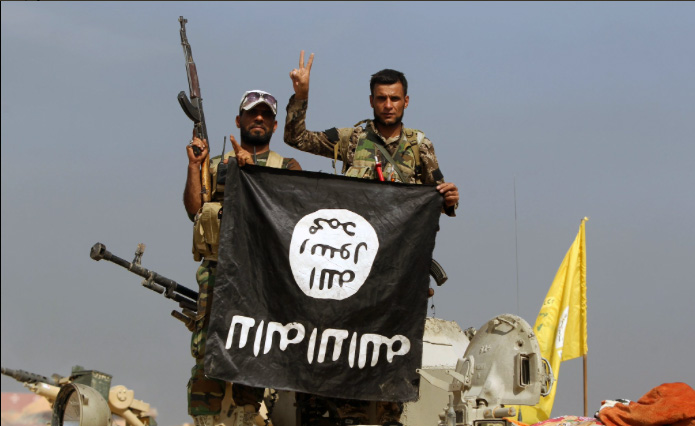Jihadist Propaganda
Blog
ISIS’s Online Propaganda and Underlying Psychological Orientations of Its Consumers
January 18, 2018By Matteo Vergani and Ana-Maria Bliuc. Are the psychological factors driving ISIS’s mobilisation in Western countries different from those characteristic of other jihadist groups like al-Qaeda? Does the target audience of ISIS’s English-language online propaganda differ from that of al-Qaeda? If so, then how? In our new journal article, we examine these questions by analysing the ...
Blog
We Should Pay More Attention to the Role of Gender in Islamist Radicalization
November 1, 2017By Elizabeth Pearson and David Sutcliffe One of the key current UK security issues is how to deal with British citizens returning from participation in ISIS in Syria and Iraq. Most of the hundreds fighting with ISIS were men and youths. But, dozens of British women and girls also travelled to join Islamic State in Syria ...
Blog
Islamic State’s Twitter network is decimated, but other extremists face much less disruption
September 13, 2017By Maura Conway and Suraj Lakhani This post is based on findings contained in the VOX-Pol report Disrupting Daesh: Measuring Takedown of Online Terrorist Material and its Impacts published on 15 August 2017. Alongside the fierce battles that have been raging of late in key strongholds of so-called Islamic State (IS) in Syria and Iraq, intense battles against ...
Blog
Telegram: The Mighty Application That ISIS Loves – PART II
June 14, 2017This post is Part 2 of 2. Click here for Part 1 By Ahmet S. Yayla & Anne Speckhard Reaching out on to ISIS members via Telegram channels is a significant challenge for beginners. First of all, as the Telegram application is installed, the application copies all the contact numbers on one’s cell phone and connects the ...
Blog
Telegram: The Mighty Application that ISIS Loves – Part I
June 7, 2017By Ahmet S. Yayla & Anne Speckhard ISIS has been the most successful terrorist organization in history using social media and the Internet for distributing its propaganda, dissemination of its news and more importantly to communicate. There is no doubt that the frequency and quality of ISIS posts on the Internet, including their videos, memes ...
Blog
The Role of the Internet in the Jihadist Mobilisation of Women in Spain
May 31, 2017The mobilisation of women for the jihadist cause emerged in Spain within the framework of the current mobilisation in Western Europe linked to the conflict in Syria and Iraq and the appearance of the so called Islamic State (IS) as a new vanguard of global terrorism. The explicit call from Abu Bakr al-Baghdadi to women ...
Blog
How is the Islamic State dealing with its defeat in Mosul? Interview with Charlie Winter on IS Media Output
April 19, 2017By Joel Wing More than half of Mosul has fallen to Iraqi government forces and it is only a matter of time before the whole city is retaken. How is the Islamic State portraying this defeat? Has it changed its messaging since the start of the battle? Charlie Winter, a Senior Research Fellow at the ...
Blog
Terrorist Use of the Internet by the Numbers: Part I – Quantifying Behaviours, Patterns, and Processes Using Open Sources
March 22, 2017This post is Part 1 of 3. Background Previous research on terrorist use of the Internet generally discusses the opportunities offered by the Internet to terrorist groups. Such accounts implicitly view the interaction between the Internet and the user as uni-directional (i.e. exposure to Internet content may cause behaviour change). This lacks an acknowledgement that not ...
Blog
My Islamic State Social Network
May 25, 2016My first conversation with Islamic State was about my reporting. I had just shared an article I’d written about the terrorist group recruiting Western fighters on my Twitter when I saw that someone using the Twitter handle Abu Omar had also posted a link to the piece on his own account. His profile photo unabashedly ...
Blog
The Semiotics of Violent Jihadist Propaganda: The Message and the Channel
September 30, 2015by Massimo Leone On the one hand, terrorism is the antithesis of communication. It does not aim at transmitting any message to its victims, but at annihilating them. On the other hand, yet, terrorism is extremely powerful communication for those who witness the tragedy, directly or through the media, and are either terrified or fascinated ...








